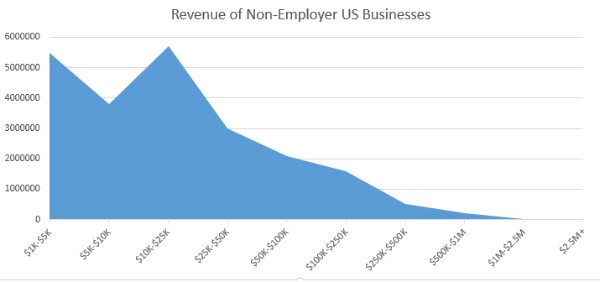Consider this a precursor to the Spokal ‘mission statement’ – though we haven’t penned it into words – it’s what’s driven us through every decision we make here. It’s how we determine what goes in the product and what does not. It’s the heart of who we are.
It’s how we make choices between ease of use, and flexibility. Sometimes we find the best of both worlds. Sometimes we need to make a call.
We built Spokal because online marketing is changing so fast – it’s hard for anyone but full-time online marketers to keep up.
Because current marketing automation platforms have complex feature-sets, mandatory training, and expensive annual lock-ins.
Because none of the current generation of platforms work for small business. I mean real small businesses – from freelancers to owner/operators with up to around 10 employees.
Why small business?
Some really interesting stats about real small business in the US that you might now know: (stats for Canada, UK and other countries have similar breakdowns)
Businesses with less than 10 employees account for over 95% of all businesses in the US.
Non-employer firms (that is, freelancers, owner/operators with no employees) account for 78% of all businesses. Total revenue from non-employers hit $989 billion in 2011. Up 4% from 2010.
Non-employer businesses (businesses with no employees) revenues range from $1000/year to $2.5 million. Here’s the breakdown (this includes part-time businesses):
Looking at that data, it looks like at least 41%, and perhaps as many as 66% of non-employer firms are part-time (or at least not making enough money to support someone). How many of those would like to grow to full-time? Of the rest, there are 34-59% working full-time (or at least earning enough to support someone), which is somewhere between 7.5 and 13 million small businesses in the US alone.
Over 50% of the working population works in a small business of less than 100 employees, and over a quarter of the working population works in small businesses with less than 10 employees.
543 000 new businesses are started each month in the US (but more employer businesses shut down than start up each month)
70% of new employer firms survive at least 2 years. Half at least 5 years. A third, 10 years, and a quarter, 15 years or more.
So, here’s the thing. The guys that need marketing automation the most – can’t afford the time required to operate, or money required to buy, the large, well-known existing platforms. They’re great. They’re just a bit clunky, a bit over-developed, and a bit expensive.
That’s why we created Spokal.
On a personal level, I worked for Fortune 500 companies for over a decade when I first entered the work force.
That experience taught me many things. One of which is that I would much rather see a world of small business owners than a world run by large corporations. The internet really has levelled the playing field a lot for small business, and we want to make it easier for them to leverage that because we’d rather see a world run by passionate small business owners than faceless mega-brands.
It’s entirely possible now for small businesses to be successful on the basis of a solid inbound marketing strategy alone. (backed up with a solid product or service hopefully!)
Check out these 11 examples of small businesses that rocketed to success or even avoided bankruptcy through aggressive inbound marketing.
We are building Spokal for those who want to strike out on their own. Those who just aren’t content being employees. We’re building it for you because you’ve chosen the hard path already.
You’ll still need to put in some work. There’s no getting around that anymore. (See here why that’s actually great news!)
We will, however, take away the need to have to become an online marketing expert (on top of the accountant, janitor, bookkeeper, salesman, CEO and resident expert in your specific field) to succeed.


